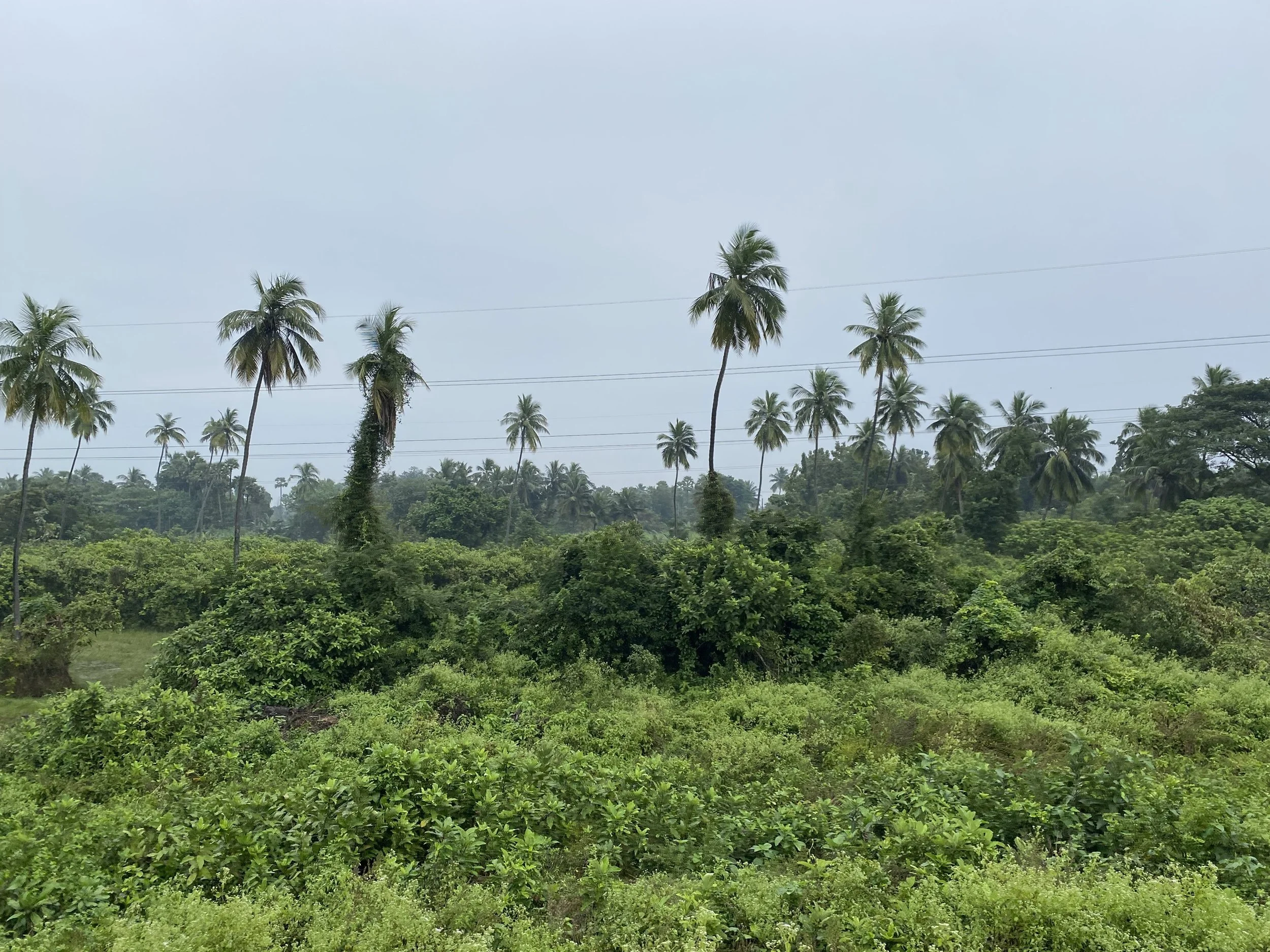Hinduism Outside the Box: A Conversation with Manu Pillai
Manu Pillai, the author of Gods, Guns and Missionaries, speaks to Amritesh Mukherjee about history beyond monochromatic brushstrokes, the highs and lows of social media discourse, Hindu plurality, and some recommended books.
Poetry as Ritual Magic: Rajorshi Patranabis’s GOSSIPS OF OUR SURROGATE STORY
Poetry is a prayerful medium to explore complex, living concepts. Just as fruit falls from the bough to decay within earth and feed the tree, Rajorshi Patranabis’s presents the ritual of cyclical love and devotion in his new collection. By Dustin Pickering
Burrow of the Mind: A response to Amit Shankar Saha’s poetry in ETESIAN::BARAHMASI
‘Your book felt like the scent of passing months, layered with flowers, rain, spring and autumn—a scent that reached into the city’s deep burrows.’ By Sufia Khatoon
The Divine Lens: A Biography of Raghu Rai
Through intimate details and dialogues, Rachna Singh’s Raghu Rai: Waiting for the Divine invites readers into the expansive vision of the man often hailed as the father of Indian photography. By Neera Kashyap
Where do we find a story? An interview with Snehaprava Das
Poet, author, and translator Snehaprava Das speaks to Mitra Samal about her storytelling process, how translation can enhance creativity, the authors that have inspired her, and more.
Heer, Ranjha, and Haroon Khalid’s Infinite Story of Love
Haroon Khalid’s 2024 novel From Waris to Heer (Penguin) is an answer to the refrain of timeless stories—a tale of love and loss, power and rebellion, retold with the lilt of a Sufi melody. By Amritesh Mukherjee
TEN INDIAN CLASSICS: Selections from ‘Selected Ghazals and Other Poems’ by Mir Taqi Mir
Extract from the work of Mir Taqi Mir: Mir’s poetry abounds in bawdiness, the pain and enjoyment of life, instances of homosexuality, Sufi themes, close and wise observation of the world, and insistence on man’s dignity. Translated by: Shamsur Rahman Faruqi
Calcutta’s Chromosome, Hidden in Plain Sight
Ronald Ross was once immortalized in Amitav Ghosh’s historical novel. Nivedita Dey rediscovers a memorial dedicated to Kolkata’s forgotten, Nobel laureate physician.
BLASPHEAR by Sohail Rauf: Religion, Fear, and the Cost of Silence
Set against a backdrop of religious abuse and suffocating intolerance, Sohali Rauf’s Blasphear is a sharp commentary on the ideas of nationhood, and how its intangible forces act as blind shepherds, leading the masses down paths they cannot question. By Amritesh Mukherjee
Gopal Lahiri’s Poetry of Motion
The ecopoems in Gopal Lahiri’s Anemone Morning delve into a kind of exploratory myth that engages readers with creative potential, stressing that there could be no division between who we are and where we are. By Dustin Pickering
The Mathematical Values of Feeling Adrift
Nishant Injam’s debut story collection The Best Possible Experience (2024) features a cast of characters between India and the United States who are often homesick for another world: a world that could be a physical or a metaphorical distance away, a world they aspire to with the burdens of a life unfulfilled. By Karan Madhok
A ‘Spicy’ Feast of Fantasy
Prashanth Srivatsa’s The Spice Gate as a spectacular debut fantasy, a feast to the readers who slurp on worldbuilding, while also making them wonder if a freer world is possible. By Akankshya Abismruta













